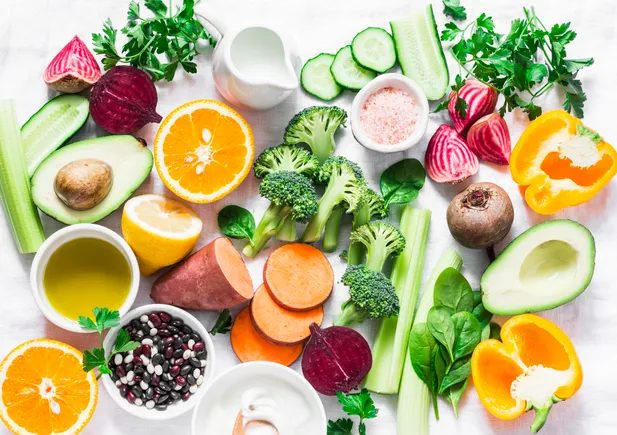The idea of receiving wellness and beauty benefits from eating certain foods is not a new thing. We are what we eat, after all.
But clean eating and clean beauty have moved front and center into the food and beverage narrative. Getting essential vitamins and minerals for your skin from whole foods like antioxidant berry smoothies and bone broth soups is now more than a trend.
“It’s blending nutrition with aesthetics,” said Patsy Ramirez-Arroyo, a food and sustainability consultant. “Younger consumers are thinking about ‘how do I combine skincare with healthy nutrition?’ ”
Functional foods front and center
The promise to support skin health, the immune system and the microbiome, among other benefits, is driving parts of the food and beverage industry.
“Personalized nutrition will gain momentum, driven by technological advancements and a growing focus on health,” said Ramirez-Arroyo. “Companies will offer customizable product lines, develop AI-powered nutrition apps, and create functional foods with targeted health benefits. Functional foods that support cognitive health and emotional well-being will also grow in popularity. Ingredients like adaptogens, nootropics and mood-enhancing botanicals will be featured in various products.”
Kefir and fermented probiotic products supplier Lifeway Foods Inc. released its latest functional beverage, Probiotic Smoothie + Collagen, which is made with kefir cultures to boost skin health attributes among other benefits.
Younger consumers, who are fueling the trend, care more about their food choices and seek greater transparency and benefits from the products they consume, according to Ramirez-Arroyo. A survey from Mintel reported that 37% of female consumers in the U.S. were willing to pay more for sports drinks that included benefits beyond sports performance. Skin-beneficial collagen and antioxidants are the top two ingredients that women were interested in, according to that survey.
Snacking for your complexion
Collagen powder rose to popularity in the late 2010s, growing to a $5.1 billion market in 2023. Collagen supplements have been shown to improve skin hydration and elasticity in older people. They might also help lessen wrinkles or lead to thicker hair. While more men go bald, many women also experience hair loss or thinning as they age.
Other ingredients touted as having skincare benefits include Omega fatty acids; zinc; lycopene found in tomatoes; vitamins C, E and A; antioxidants; and of course collagen. Ramirez-Arroyo predicts that adaptogens from mushrooms like Lion’s Mane will be big in 2025 for their claims to reduce stress and support the immune system.
A small study of 30 women over 90 days showed that taking an oral aloe vera gel increased collagen production and improved skin elasticity. In another study of 30 men, researchers found that healthy lifestyle and diet changes increased the length of telomeres in the cell DNA. Telomeres are the sections of DNA at the end that are shortened during each replication. The shortening contributes to aging.
According to Giuseppe Valacchi, a professor of regenerative medicine at North Carolina State University, consuming antioxidants like vitamins E and C stimulate an enzyme in the human body that has been shown to prevent oxidative damage that accelerates skin aging.
Snack foods infused with ingredients and marketed to combat aging, hydrate skin and prevent acne are going to be a popular trend for 2025.
“A pepper has some kind of benefit. But I don’t like them. But when you have all those ingredients in a bar, it becomes something tastier and still healthy. Now you’re giving the option to a wider market,” Ramirez-Arroyo said.







